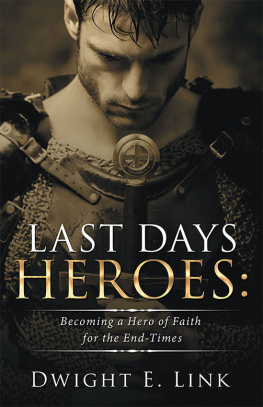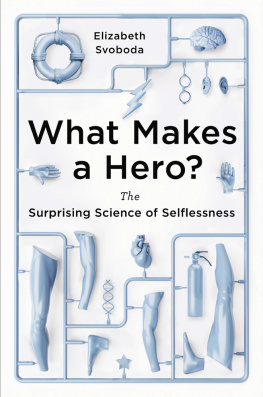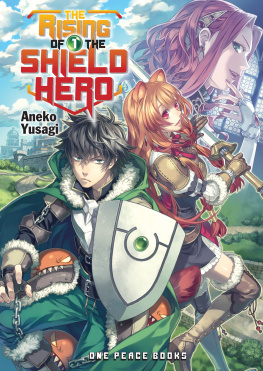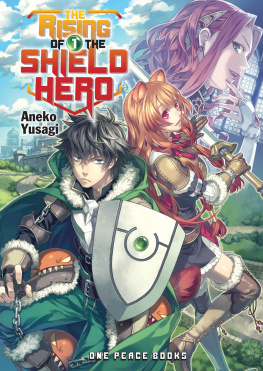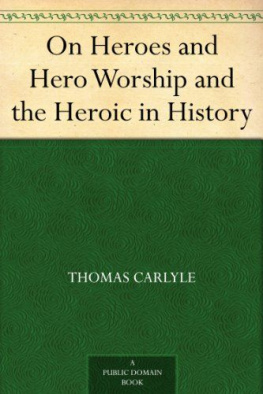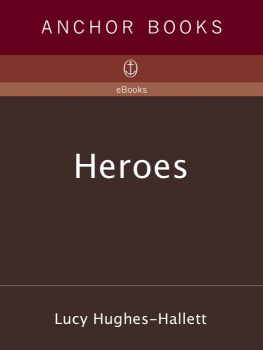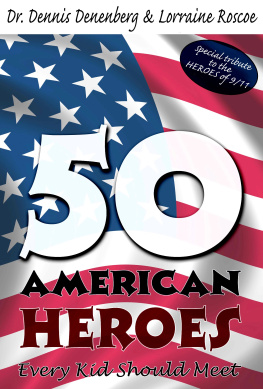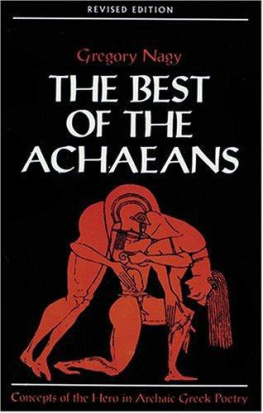THE HEROIC HEART

2015 by Tod Lindberg
All rights reserved. No part of this publication may be reproduced, stored in a retrieval system, or transmitted, in any form or by any means, electronic, mechanical, photocopying, recording, or otherwise, without the prior written permission of Encounter Books, 900 Broadway, Suite 601, New York, New York, 10003.
First American edition published in 2015 by Encounter Books, an activity of Encounter for Culture and Education, Inc., a nonprofit, tax exempt corporation.
Encounter Books website address: www.encounterbooks.com
The paper used in this publication meets the minimum requirements of ANSI/NISO Z39.481992 (R 1997) (Permanence of Paper).
FIRST AMERICAN EDITION
LIBRARY OF CONGRESS CATALOGING-IN-PUBLICATION DATA
Lindberg, Tod.
The heroic heart: greatness ancient and modern/by Tod Lindberg.
pages cm
Includes bibliographical references and index.
ISBN 978-1-59403-824-2 (ebook)
1. Conduct of life. 2. Heroes. I. Title.
BJ1533.H47L56 2015
205dc23
2015005296
For David Robins
CONTENTS
... tho
We are not now that strength which in old days
Moved earth and heaven, that which we are, we are;
One equal temper of heroic hearts,
Made weak by time and fate, but strong in will
To strive, to seek, to find, and not to yield.
Tennyson, Ulysses
I present to you a book I have been working on all my life, though not until recently with a view that the problems I was trying to figure out would turn into a book one day.
Do you have someone you consider to be your hero? Did you ever? Do you consider anyone, living or dead, to exemplify in one way or another the quality of greatness? I do, and did, and do.
And if you happen to be inclined to devote ten minutes to making a list of the people you have considered exceptionally admirable at one time or another in your life, I think your list no less than mine would form a proper beginning for an investigation of the qualities that make a heroexemplary figures of human greatness, contemporary or historical, real or quasi-mythical or imaginary.
What a variety of characters populate my list of heroes. Who looms large? My parents, first of all: In the absence of tragic circumstances, early childhood seems inevitably to ascribe larger-than-life stature to Mom and Dad. Then comes an inevitable period of ups and downs, middle school emphatically included. Later, if all goes well, comes a grown-up appreciation of who they were and what they did for you. In my case, that turned out to have been a lot more than they were under any reasonable obligation to do.
My mother was badly afflicted at an early age with rheumatoid arthritis, and the joints of her fingers were frozen into awkwardly painful positions. She and my father long wanted children, but the years went by without success, to the point at which hope was fleeting. I was a late-arriving surprise.
Stomach cancer, first misdiagnosed as an ulcer, claimed my mother in her late forties when I was about 13; its unlikely given the state of treatment at the time that a proper diagnosis would have changed the outcome. Her battle did not last long.
I mention her lifelong adversity because my mother was undaunted by it until the end. She was a teacher, though not full-time once I came along; but as I got older she took longer-term assignments as a substitute. She was in high demand at an area school for special needs children, who were then called mentally retarded. I am not above a certain coarseness of expression. But from my earliest youth onward, the use of retard to refer to someone with disabilities has struck me much the way the N-word strikes decent people nowadays. It evokes visceral disgust. This is a legacy of my mother (who actually was a woman above coarseness of expression).
She was a natural leader and was good at most everything she did. I was bursting with pride when she became president of the Womens Club of White Oak Heights only a couple years after we moved to that suburban Pittsburgh neighborhood. Once her term was over, I liked to look at her name in the clubs annual guidebook in the list of Past Presidents. Her cooking was delicious beyond all expectation in the late 1960s; I retain to this day a taste memory of the shrimp Newburg she often made for company. As for her excellence in local bridge tournaments, usually playing with my father, I once asked Mom how well Dad knew the game; she sweetly replied that it didnt matter that much, because she knew Dad.
My father was an Eagle Scout, a rank I never attained, and he took over as scoutmaster of my troop as I was beginning to outgrow it, continuing for several years in the absence of any current scout father stepping up. He was a man without great ambition but reasonably successful in his career, working as a traffic agent moving coal for the railroad, eventually becoming Coal Sales Manager in Chicago, the final stop of four cities of increasing size in my youth.
Thats where calamity struck with the death of my mother. I cant imagine what that must have been like for him. Not just the grief but the sudden onset of full responsibilityfor me, that is: a newly minted teenager with no small sense of self and a sore grievance with Fate. We didnt talk about my mother until years later, and even then only rarely, usually under the influence of scotch-and-soda at some dive where Dad was screwing the lady bartender. He told me once that my mothers support was behind any success hed had. She lifted me up, he said, his face contorting and eyes welling with uncontainable tears.
The evident dissipation of his retirement years was, for me, an issue. Dad was then no hero. The furniture was falling to cigarette-burn ruin and the yard returning to prairie. I was embarrassed. But I was missing the point, which was that my father never gave a damn about material surroundings, just the people who inhabited them. When my mother was alive, the yard was immaculate. Now, there was a higher priority. Some people drink to forget, he once said; he drank to remember.
I was the principal beneficiary of his selflessness. It entailed such things as devoting the tax refund he got from losing his shirt on the stock he owned in his bankrupted railroad company, the Penn Central, to buy my garage band an expensive sound system. But I was hardly the only beneficiary. All of my Boy Scout buddies knew him as someone good for a drink and a pleasant evening of reminiscing and swapping taleslike the time on a camping trip when my friend T. spent the night passed out face down on a muddy path, followed by an amazing bout of puking the next morning. (Dont cut frozen lemonade concentrate with straight vodka, kids.) Dad never had much money, and what he did have he spentnot on himself but on others. His credo, though never articulated as such, was to take any given occasion and make more of it.
So, my heroes Mom and Dad. Also, Mr. H., the father of one of my friends and the coach of our Little League team, to me the very model of rectitude and probity. Not that I ever thought of him in those terms. But during one baseball season, another friend of mine, more advanced in the ways of the world, excitedly decided to tell me about the facts of life. He presented his information as if hed been born with the knowledge: how the mans dick went into the womanswell, I dont remember the term he used; dick is verbatim, though. As he went on, not that he had much else to say, I was pretending to have known about such matters all along. But internally I completely rejected my friends outlandish claim. My reason for doing so was that Mr. H. came immediately to mind as a test case. It was simply inconceivable to me that Mr. H. had ever put his dick in my friends mother. No. Never. Mr. H. would never do such a thing.
Next page

